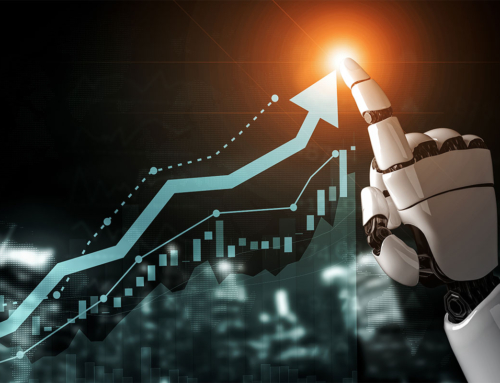It has been nearly 21 months since OpenAI released ChatGPT, its generative artificial intelligence (AI) product. We all know big changes are ahead for our industry, our company and our personal lives.
The unanswered question, though, is where are we in the “AI Revolution?”
I choose to consider this through the lens of an owner of a fully integrated marketing communications agency designed to help brands prosper and win. The considered impact of AI in our industry is significant.
I and our team have written about the impact of AI in blogposts. We have gleaned insights from those smarter than we are on numerous podcasts.
I have little sense of when specifically we’ll feel the changes we know are coming: when might we realize the much-promised increased productivity; when might AI directly impact our work force; or, how it might change how we deliver our services?
In the most recent J.P. Morgan Private Bank Mid-Year Outlook, in a section titled, “The AI revolution: It’s just getting started,” Chairman and CEO Jamie Dimon, “… likened AI to the steam engine, electricity and the personal computer.”
The premise of Dimon’s question is that productivity benefits from technological innovations take time. In the way such benefits have been measured historically — years from innovation to productivity growth — it took the steam engine 60+ years, electricity 32+ years and PC/Internet 15+ years.
History has also shown that with each earth-shaking innovation, the time to realize productivity growth declines. For AI, the projected timeframe for the realization of productivity growth is seven years, or a little over five years from now.
Here’s how the J.P. Morgan report was positioned, “It took 15 years for the personal computer to increase the economy’s productivity. AI could do it in seven. Today, less than 5% of U.S. companies are actively using AI. But the potential use cases span almost every industry.”
The J.P. Morgan report adds, “Job displacement may be acute for workers in specific industries and regions, overall technological improvements will likely create more jobs than it will destroy.”
How much time will it take for AI to have its nearly certain impact on those working in my industry sector? The only definitive answer is that change is coming. Whether 5, 7, 10 or 15 years, it doesn’t really matter.
We must embrace AI as a reality to help us provide even better service to our clients. We must anticipate how it might change what we do and be in front of that change, whatever that means for us. This is what our clients expect of us and what we must do not just to survive, but to thrive.
Most important, we must continue doing what we’re doing now … learning and growing and positioning ourselves for the change we know is coming.








